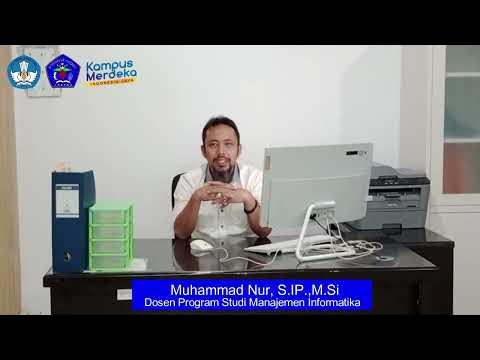How you can be top 1% of aspirants by making NOTES the RIGHT way
Summary
TLDRIn this informative session for UPSC aspirants, the speaker discusses effective note-taking strategies, emphasizing the importance of understanding over mere copying. He advises minimizing time spent on writing down content—suggesting a focus on summarizing key concepts, using keywords, and noting crucial elements such as causes and consequences. Through practical examples from Indian polity and history, he illustrates how to distill complex information into concise notes, enabling better revision and comprehension. The session ultimately aims to enhance study efficiency and improve answer writing skills for aspirants.
Takeaways
- 😀 Focus on understanding over copying; spend only 20-30% of your time making notes.
- 😀 Prioritize writing down the 'what', 'why', 'when', 'how', and consequences of the material.
- 😀 Identify key personalities associated with historical events for better context and recall.
- 😀 Use keywords in your notes to enhance clarity and effectiveness when writing answers.
- 😀 Summarize concepts in your own words rather than reproducing lengthy text from sources.
- 😀 Highlight only essential points in your notes to avoid clutter and confusion.
- 😀 Regularly revisit and revise your notes to reinforce understanding and retention.
- 😀 Use margins of your book for quick notes instead of extensive rewriting.
- 😀 Focus on important theories and critiques, such as the drain theory in the context of colonialism.
- 😀 Develop a structured approach to note-taking that emphasizes application of concepts.
Q & A
What is the primary focus of the discussion in the transcript?
-The discussion focuses on effective note-taking strategies for UPSC preparation, emphasizing the importance of not wasting time on making elaborate notes.
Why do many aspirants struggle with note-taking according to the speaker?
-Many aspirants spend excessive time creating aesthetically pleasing notes by copying large portions of textbooks, which detracts from their understanding and study time.
What is the suggested time allocation for note-taking versus studying?
-The speaker recommends spending only 20-30% of study time on note-taking and the remaining 70-80% on understanding and revising those notes.
What key components should be included in effective notes?
-Effective notes should capture the 'what,' 'why,' 'when,' 'how,' causes, consequences, key personalities, and important keywords related to the topic.
How should keywords be utilized in note-taking?
-Keywords should be noted as they encapsulate the core concepts of the subject and enhance the quality of written answers in exams.
What does the speaker suggest about the role of application in note-taking?
-The speaker emphasizes the importance of applying one's mind while studying, encouraging aspirants to summarize and synthesize information rather than simply reproducing it.
Can you give an example of how to make notes from a specific topic mentioned?
-When studying the economic critique of colonialism, one should focus on key figures, theories like the drain theory, and the overall economic impact of British rule, rather than copying entire sections.
What is the significance of understanding the causes and consequences in notes?
-Understanding the causes and consequences helps contextualize the information, making it easier to recall and apply in exam scenarios.
What is the advised approach when revising notes?
-The speaker suggests structuring notes for quick revision, highlighting major arguments and keywords to facilitate efficient study sessions.
What is the overall message of the speaker regarding effective study habits?
-The overall message is to prioritize understanding and active engagement over creating detailed notes, thereby maximizing the efficiency of study time for UPSC preparation.
Outlines

هذا القسم متوفر فقط للمشتركين. يرجى الترقية للوصول إلى هذه الميزة.
قم بالترقية الآنMindmap

هذا القسم متوفر فقط للمشتركين. يرجى الترقية للوصول إلى هذه الميزة.
قم بالترقية الآنKeywords

هذا القسم متوفر فقط للمشتركين. يرجى الترقية للوصول إلى هذه الميزة.
قم بالترقية الآنHighlights

هذا القسم متوفر فقط للمشتركين. يرجى الترقية للوصول إلى هذه الميزة.
قم بالترقية الآنTranscripts

هذا القسم متوفر فقط للمشتركين. يرجى الترقية للوصول إلى هذه الميزة.
قم بالترقية الآنتصفح المزيد من مقاطع الفيديو ذات الصلة

Junaid Ahmed UPSC preparation for beginners Complete one year plan | IAS Junaid Ahmad

😱UPSC Prelims Shocking Factor --How to Approach 3 Column Question | UPSC PYQ Analysis #upsc2025 #ias

22 की उम्र में College के साथ 1st Attempt में UPSC निकाली | Neha Verma (AIR-1002) | Josh Talks UPSC

What's the Best Way to Write Notes? @KoiAcademy

PDD-UKTPT Bidang Pengajaran | Muhammad Nur | Politeknik Negeri Fakfak

How to use UPSC Prelims Test series to maximise your score || Anonymous UPSC Aspirant
5.0 / 5 (0 votes)
